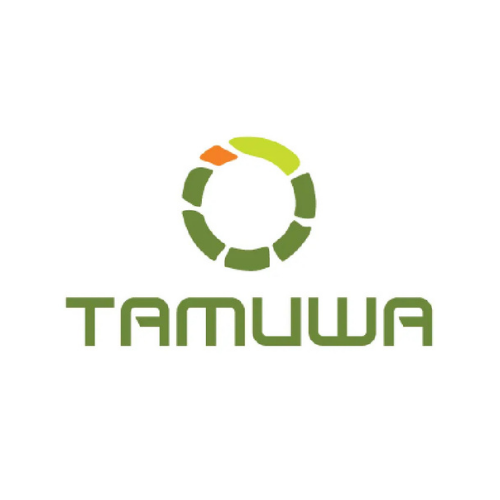
HashSea
HashSea is a dedicated NFT marketplace and launchpad platform operating on the Hedera blockchain network. It provides a space for creators and buyers to mint live, purchase assets on secondary market or create their own NFT assets while engaging with the other digital assets native to the Hedera network.
As a marketplace, HashSea facilitates the discovery, purchase, and sale of Hedera NFTs, leveraging the network's high throughput and remarkably low, predictable transaction fees. Meanwhile, functioning as a launchpad, HashSea empowers creators by offering tools and services to easily mint and debut new projects directly to the Hedera ecosystem. This dual role positions HashSea as a key enabler for both established and emerging artists and developers looking to capitalize on Hedera's efficient, carbon-negative infrastructure.
HashSea’s utilization of the Hedera Token Service (HTS) allows it to offer features embedded features such as native, enforceable royalties for creators and near instant transactions. It supports the HashPack wallet for minting, listing, and trading NFTs on the Hedera blockchain network.
Project Information
Related Projects

Capturiant, founded in 2022, is a Houston-based company that operates as a global environmental asset authenticator, registry, and marketplace. The company's mission is to bring efficiency, transparency, and trust to the historically opaque and fragmented environmental asset markets, including carbon credits.
The core of Capturiant's service is an integrated platform that manages the entire lifecycle of environmental assets. This includes the authentication and validation of projects that generate credits, the minting and registration of these credits on a digital registry, and a regulated exchange for trading them. By creating a transparent, private-sector-driven model with clear fee structures and robust standards, Capturiant aims to increase confidence and liquidity in the market.
Capturiant's entire platform is built on the Hedera network. The company utilizes Hedera's distributed ledger technology (DLT) to create an immutable and auditable record for every environmental asset it registers. By leveraging the Hedera Consensus Service, Capturiant ensures the integrity and transparency of all transactions, from the minting of a credit to its final retirement.

Hedera Coinflip is a decentralized application (dApp) built on the Hedera network that offers a simple, "double or nothing" style betting game. Users can wager HBAR for a 50/50 chance to double their bet. The platform's core value proposition lies in its commitment to transparency and fairness, which is achieved through its unique use of the Hedera Consensus Service (HCS).
The fairness of each flip is guaranteed by a provably fair mechanism that prevents manipulation by either the player or the platform operator. When a user initiates a flip, a combination of a server-provided seed and a client-provided seed is submitted to the Hedera network via HCS. The immutable and unpredictable consensus timestamp assigned to this transaction by the decentralized network is then used to determine the outcome. Because this timestamp cannot be influenced or known in advance, the result of the coin flip is truly random and publicly verifiable.
A small percentage of each wager contributes to a progressive jackpot, which can be won by players who achieve a specific, consecutive number of wins. This jackpot serves as the platform's primary revenue model while also creating an exciting, high-reward target for dedicated players.

Citadel Wallet is a specialized hardware wallet designed to offer robust security and a seamless user experience for individuals interacting with the Hedera Hashgraph network. Its development was supported by HeadStarter's Builder Labs.
It features a full suite of secure storage options focused on providing secure storage and transaction capabilities for Hedera's native cryptocurrency, HBAR, as well as Hedera Token Service (HTS) tokens and non-fungible tokens (NFTs).
The Citadel Wallet device emphasizes high-grade security, incorporating features such as Common Criterial Evaluation Assurance Level 6+ (EAL8+) certified Secure Element and a secure microprocessor featuring Trust Zone technology to protect users' private keys offline.
Citadel Wallet is engineered to support the full spectrum of Hedera network services, including native staking, interaction with smart contracts, and management of various Hedera-based assets. It also features a user-friendly interface and offers both USB-C and secure Bluetooth connectivity for flexible interaction with companion applications and decentralized applications (DApps) within the Hedera ecosystem.

Tamuwa, founded in 2015, is a Kenyan company at the forefront of the renewable energy sector in Africa. Its primary focus is on converting agricultural waste, specifically sugarcane bagasse, into a sustainable and affordable energy source. By producing high-density briquettes and pellets, Tamuwa provides a clean alternative to traditional fuels like firewood and charcoal, addressing issues of deforestation and promoting a circular economy.
The company's core service is the production and distribution of these biomass briquettes, which have a high calorific value and low moisture content, making them an efficient fuel source for industrial and domestic use. Tamuwa has also developed the CYNK platform, a digital end-to-end solution for the measurement, reporting, verification, and trading of high-quality voluntary emissions reductions (VERs). This platform is designed to bring trust and transparency to the carbon offset market, enabling local communities and projects to gain greater financial benefit from their environmental initiatives.
The CYNK platform is built on the Hedera network, leveraging its high-throughput, low-cost, and energy-efficient distributed ledger technology. This integration allows Tamuwa to digitize and tokenize verified emissions reductions, creating a secure and transparent marketplace for carbon credits.
